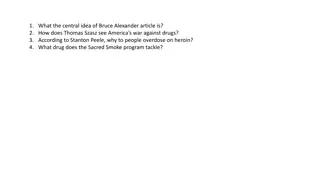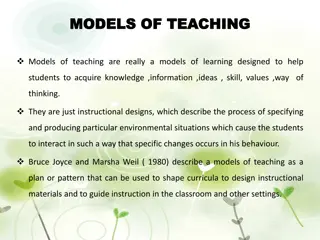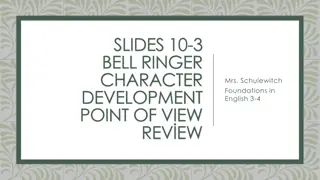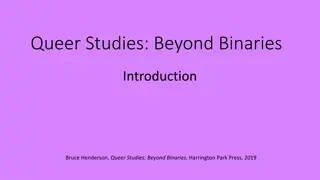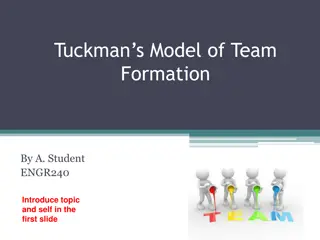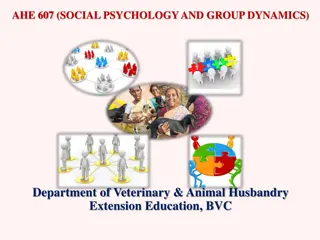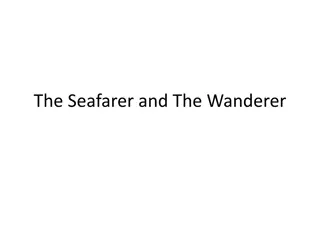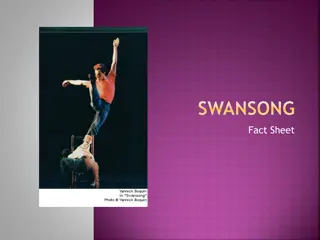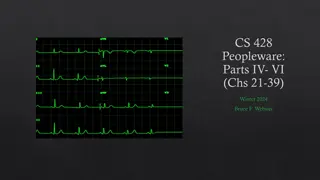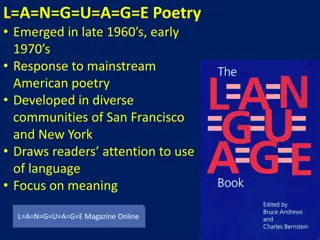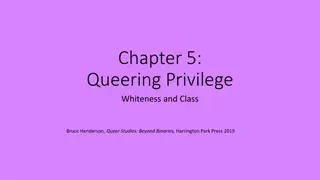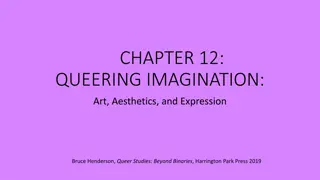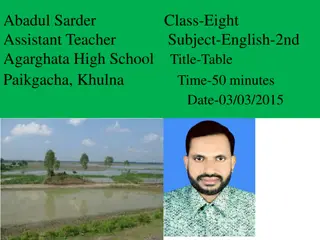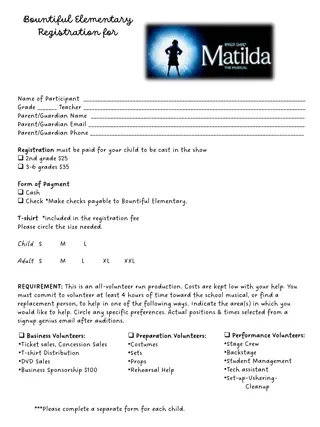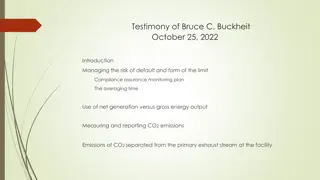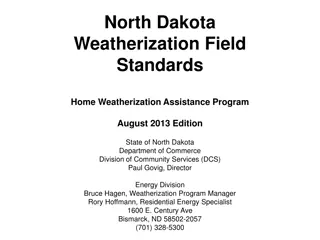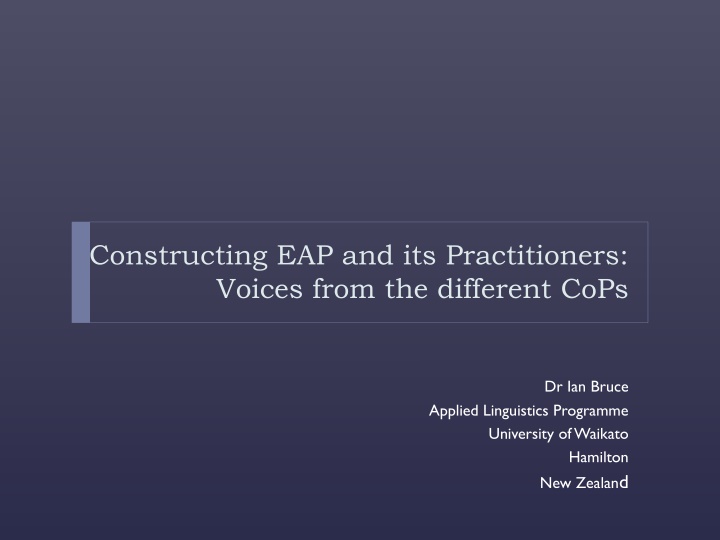
Voices of EAP Practitioners: Defining, Developing, and Understanding EAP
Exploring the world of English for Academic Purposes (EAP) through various perspectives, this content delves into how EAP is defined and represented across different communities of practice. It discusses the development of study skills, discourse knowledge, and genre understanding essential for academic success. Discover insights from EAP literature and practitioners in this comprehensive exploration of EAP constructs and issues.
Download Presentation

Please find below an Image/Link to download the presentation.
The content on the website is provided AS IS for your information and personal use only. It may not be sold, licensed, or shared on other websites without obtaining consent from the author. If you encounter any issues during the download, it is possible that the publisher has removed the file from their server.
You are allowed to download the files provided on this website for personal or commercial use, subject to the condition that they are used lawfully. All files are the property of their respective owners.
The content on the website is provided AS IS for your information and personal use only. It may not be sold, licensed, or shared on other websites without obtaining consent from the author.
E N D
Presentation Transcript
Constructing EAP and its Practitioners: Voices from the different CoPs Dr Ian Bruce Applied Linguistics Programme University of Waikato Hamilton New Zealand
Overview how EAP is defined and represented: within EAP itself by other communities of practice in university promotional texts possible issues and constructs to consider when (re)defining EAP
Samples Texts with Definitions of EAP from EAP itself journals and books literature of other CoPs advertising texts from university websites
Definitions from EAP Literature the teaching of English with the specific aim of helping learners to study, conduct research or teach in that language (Flowerdew & Peacock, 2001, p. 8).
Development of Study Skills communication skills for study purposes (ETIC, 1975) language study skills will form an essential component (Gillet, 1996) any English teaching that relates to a study purpose. Students . . . may need help with both the language of academic disciplines and the specific study skills required of them. (Dudley-Evans & St John, 1998, p. 34)
Development of Discourse Knowledge English for Academic Purposes refers to language research and instruction that focuses on the specific communicative needs and practices of particular groups in academic contexts. It means grounding instruction in an understanding of the cognitive, social and linguistic demands of specific academic disciplines [emphasis added] (Hyland & Hamp-Lyons, 2002, p. 2) EAP teachers try to prepare students as fully as possible to benefit from the methods of teaching and learning that they will meet at university. A major part of this preparation is the acquisition of . . . academic language that will be used in the lectures, reading materials, discussions and seminars [emphasis added] (Alexander, Argent & Spence, 2008, p. 7)
Development of Knowledge of Genres and Tasks Content is limited to academic discourse e.g. emphasis on academic style: academic vocabulary and associated grammar and discourse features . . . . Text choice is based on academic genres (Alexander, Argent & Spence, 2008, p. 7) This study will be centred on the texts (spoken and written) that occur in academic contexts and will include the discourses and practices that surround and give rise to such texts. (Bruce, 2011, pp. 5-7) there are certain general activities that all students need to be able to carry out, such as reading textbooks, listening to lectures and writing academic texts such as examination answers, all of these activities take place within specific subject areas or disciplines (Charles & Pecorari, 2015, p. 8)
Development of Student Autonomy and Critical Thinking Study skills are emphasized and made explicit, particularly learner independence and cognitive skills, especially critical thinking. (Alexander, Argent & Spence, 2008, pp. 3-5) Yet there are many more skills and competences, such as critical thinking skills, study skills . . . . Also, EAP is concerned with the development of student autonomy and independence. (De Chazal, 2014, pp. 5-6)
Themes from Definitions of EAP from other Communities of Practice
Textual/Linguistic not Contextual /Ethnographic Ac Lits theorists . . . define their field as outside of, and possibly in opposition to the strongly textualist tradition towards the academic writing of users of English as an additional language, reflected most strongly in the transnational pedagogy and enterprise of English for Academic Purposes (Lillis & Curry, 2010, p. 21) EAP genre studies have therefore elucidated linguistic patterns in levels and types of academic writing, but have focused less on how such patterns relate to socio-rhetorical details of particular writing tasks [emphasis added] (Aull, 2015, p. 31)
Conforming/Socializing to Norms not Transformative A normative approach evident for example in much EAP work can be summarised as resting on the educational myths that Kress (2007) describes: the homogeneity of the student population, the stability of the disciplines and the unidirectionality of the teacher-student relation (Lillis & Scott, 2007, p. 13) English-medium universities have generally adopted centralised models of in-sessional English language provision . . . This arrangement might be seen as reflecting a one-size-fits-all study skills perspective on EAP, one that treats the development of student writing, in particular, as mastery of a set of skills that are generalizable across different disciplines (Murray, 2016, p. 1)
Based on a Deficit View of Students it [EAP] supplies international students with the knowledge and competencies that they need/lack, it operates on a deficit model with the unstated implication that home students already have these competences (Hathaway, 2015, p. 507) In EAP, the overriding metaphor adopted to describe students participation has been that of novice-expert trajectory (Lillis & Tuck, 2016)
Definitions of EAP from Promotional Literature
Concerned with Language Skills Development The main emphasis is on reading and writing skills, as these are very important for your later study. Speaking and listening skills are also covered, together with integrated work on language use in an academic context. (The English for Academic Purposes Programme, Lancaster University) In the English for Academic Purposes (EAP) program, we teach students academic English through Writing, Reading, Listening/Speaking and Grammar courses (South-West Florida State College)
Concerned with Study Skills Development The course will also concentrate on the learning and teaching methodology in use in Britain (e.g. seminars, essay writing, listening to lectures, note taking, use of the University library, research skills, critical thinking, time management and many more). (English for Academic Study, The University of Southampton) Academic study skills addressed include: test taking and note taking skills; academic vocabulary usage, critical reading and writing, comprehending academic lectures, research and library skills, formal composition form and development including research papers. (The University of Delaware)
Focuses on Language in Academic Contexts Language development. This is an integral part of all course components. The focus is on how language is used to express different meanings in academic contexts, especially in academic writing. (University of Lancaster) The course is designed to increase your confidence and fluency in language use in formal and informal academic contexts . . . (University of Southampton
Conclusion My overall conclusion from this small study is that there is a need for the EAP community itself to review and reconsider the underlying constructs of EAP, beginning with its role within universities and the premises on which it is based in order to assert its own representational vision of the field. Part of this representational review process could involve considering its relationship to, and the extent of the contributions of the other communities of practice.
Defining EAP: Some Considerations the processes and content of EAP the complexity of EAP the contributions of other CoPs language as it is embedded in the practices, discourses and texts of the academic world the focus is not just on language as the linguistic trace of a discourse process, but the whole discourse process (including the language) discourse (and discourse competence development) acknowledges disciplinarity
The Three Samples EAP Sample Alexander, O., Argent, S., & Spencer, J. (2008). EAP Essentials: A Teacher's Guide to Principles and Practice: Garnet. Bruce, I. (2011). Theory and Concepts of English for Academic Purposes: Palgrave Macmillan UK. Charles, M., & Pecorari, D. (2015). Introducing English for Academic Purposes: Taylor & Francis. De Chazal, E. (2014). English for Academic Purposes: Oxford University Press. Dudley-Evans, T., & St John, M. J. (1998). Developments in English for specific purposes: A multi-disciplinary approach: Cambridge university press. Flowerdew, J., & Peacock, M. (2001). Research perspectives on English for academic purposes: Ernst Klett Sprachen. Gillett, A. (1996). What is EAP. IATEFL ESP SIG Newsletter, 6, 17-23. Hyland, K. (2006). English for Academic Purposes: An Advanced Resource Book: Taylor & Francis. Hyland, K., & Hamp-Lyons, L. (2002). EAP: Issues and directions. Journal of English for academic purposes, 1(1), 1-12. Jordan, R. R. (1997). English for academic purposes: A guide and resource book for teachers: Cambridge University Press. Other Communities of Practice Sample Aull, L. (2015). Linguistic Attention in Rhetorical Genre Studies and First Year Writing. Paper presented at the Composition Forum. Hathaway, J. (2015). Developing that voice: locating academic writing tuition in the mainstream of higher education. Teaching in Higher Education, 20(5), 506-517. Jenkins, J. (2013). English as a Lingua Franca in the International University: The Politics of Academic English Language Policy: Taylor & Francis. Lillis, T., & Scott, M. (2007). Defining academic literacies research: Issues of epistemology, ideology and strategy. Journal of applied linguistics, 4(1), 5-32. Lillis, T., & Tuck, J. (2016). a critical lens on writing and reading in the academy. The Routledge Handbook of English for Academic Purposes, 30. Lillis, T. M., & Curry, M. J. (2010). Academic Writing in a Global Context: The Politics and Practices of Publishing in English: Routledge. Murray, N. (2016). An academic literacies argument for decentralizing EAP provision. ELT Journal, ccw030. Russell, D. R., Lea, M., Parker, J., Street, B., & Donahue, T. (2009). Exploring notions of genre in 'academic literacies' and writing across the curriculum': Approaches across countries and contexts: WAC Clearinghouse/Parlor Press. Tardy, C. M., & Jwa, S. (2016). Composition studies and EAP The Routledge Handbook of English for Academic Purposes: Taylor and Francis Inc. Marketing Sample Centennial College (Canada). General Arts and Science - English for Academic Purposes from http://www.centennialcollege.ca/programs-courses/full-time/english-academic-purposes/ College, S.-W. F. S. English for Academic Purposes Information. from https://www.fsw.edu/academicsupport/eapinfo Durham University. English Language for Academic Purposes,. Impact Training Institute. English for Academic Purposes from http://www.iti.edu.au/english-courses-elicos/english-for-academic-purpose Kaplan International. What are our English for Academic Purposes courses? , from https://www.kaplaninternational.com/long-term-courses/english-academic-purposes Lancaster University. (English for Academic Purposes: Programme Outline). from http://www.lancaster.ac.uk/linguistics/study/summer-schools/english-for-academic-purposes/programme-outline/ Study London. English for Academic Purposes Courses in London. from http://www.studylondon.ac.uk/application-advice/english-language/academic-english-courses-in-london University of Bremen. Academic Writing and English for Academic Purposes. from http://www.fb10.uni-bremen.de/anglistik/linguistik/forschung/englisch.aspx University of Delaware. English for Academic Purposes. from https://www.fsw.edu/academicsupport/eapinfo University of Southampton. English for Academic Study (EAS). from http://www.southampton.ac.uk/ml/international/language_support/eas.page .

